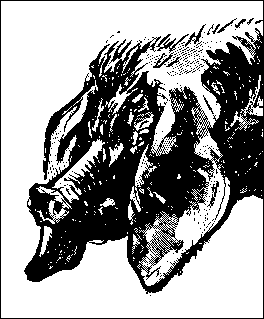And Sweet
History, Traditions,
And Making Your Own
Ben Watson
(Countryman Press)
Needless to say, it was like being in prison. Hell, once when I was teaching literature at the Washington State Reformatory in Monroe, one of the prisoners smuggled out their rule book, and I could find very little difference between the two.
We prisoners...I mean...students were forever and a day trying to figure out how to get something to addle our brains. Acid and pot hadn't been invented in the post-WWII world, so we were forced to try to invent ways to get our hands on some booze. Once I bought some cider from the shop across the way, and left it on my windowsill for a few weeks, hoping it would turn hard, so that one night my roommate and I could get stewed, as they called it at the time, have something to brag about to our friends.
Alas, I merely got a bottle of bad tasting apple-juice. What I needed was Ben Watson's wonderful book, this A to Z of making cider. For here he explains all: the difference between raw and pasteurized cider, the equipment needed --- carboys, fermentation vessels and locks, hydrometers, racking and bottling equipment --- and the additives that can be used (powdered grape tannin, ammonium sulfate, thiamine, sulfur dioxide yeasts).
There is a full list of terms (did you know that a cider with a lactic-acid bacteria disorder has a flavor that's known as "mousy?") There are descriptions of the different types of cider, including "New England-Style" (fortified with sugar), "Cyser" (made with honey), "Farmhouse cider" (still and dry), "Sparkling" (refermented in a large vat), or "Dropped" (cider made with mouse droppings.) I just made up this last one.
Then there is a list of stores or web-sites for equipment, mail-order places for hard cider, and associations: The Home Orchard Society, Seed Savers Exchange, and The Campaign for Real Ale, which is an English organization that lists pubs where real cider and perry are available (perry is cider made by a guy named Perry P. Perry --- I mean, it's cider made from pears). There are even directions for cooking with cider, including one that I'm going to make right now, if you will excuse me: "Pork Chops Braised in Hard Cider." Yum.
Chivalry
The Homoerotic
Asceticism of
Gerard Manley
Hopkins
Julia F. Saville
(University of Virginia)
 ou have to understand what it was like, back there fifty years ago. There were the bars, but for those of us who were isolated, and afraid to ask --- we didn't know where they were. When we found out about them, we wouldn't go in them on a bet. In the District of Columbia, where I lived at the time, when the bars were raided by the cops, the local newspaper, the Washington Post --- yes, the "liberal" Washington Post --- ran a full list, in agate type, of the names of those arrested and hauled down to the pokey. In Washington during the years when Eisenhower and J. Edgar Hoover were running the country, being busted as a homosexual was meant losing your respect, your job, and your dignity. Practicing homosexuality was a felony. Not a misdemeanor. A felony.
ou have to understand what it was like, back there fifty years ago. There were the bars, but for those of us who were isolated, and afraid to ask --- we didn't know where they were. When we found out about them, we wouldn't go in them on a bet. In the District of Columbia, where I lived at the time, when the bars were raided by the cops, the local newspaper, the Washington Post --- yes, the "liberal" Washington Post --- ran a full list, in agate type, of the names of those arrested and hauled down to the pokey. In Washington during the years when Eisenhower and J. Edgar Hoover were running the country, being busted as a homosexual was meant losing your respect, your job, and your dignity. Practicing homosexuality was a felony. Not a misdemeanor. A felony.Queers were a subject for jokes in the dormitories, and with friends. You and I would often join in the cruel jokes, for it was best that no one knew of our loves and lusts (sometimes, it's true, we didn't even know them ourselves.) We just could not comprehend the funny attraction we felt for our roommates, and we wondered why we came so unstrung when we chanced on our friends innocently bathing in the communal showers. This was 1955, remember? Like Blacks, and the disabled, we didn't exist or --- if we did --- it was solely with a snigger.
When we finally did try to figure it out, we searched the few books available to see what they would say about this pain. There was Psychopathia Sexualis, but there, homosexuals were linked up with those funny foot fetishists, and those weirdos who stole women's gloves and tied them "around their privates."
There was Kinsey's new study, Sexual Behavior in the Human Male, which told us that we weren't alone, but didn't tell us where to go to find sympathetic others. There was Twenty-One Variations on a Theme, but the picture of "inverts" was desperate, and lonely, and almost as weird as the one in Havelock Ellis.
Then there were the poets. Walt Whitman. Oscar Wilde. Gerard Manley Hopkins.
 Especially Hopkins.
Especially Hopkins.
In his poetry we began to find ourselves. In those twisted lines and occluded thoughts, in those passionately knotted symbols, in the locked and tight verse, telling of Sturdy Dick (Sturdy Dick!) and Felix Randal and "lovely lads" and naked boys swimming and "fairyland pictures," we found one who was as torn as we were, one who had the powerful strictures of church and state on one side and, on the other, this bubbling up --- this hurting that would not leave us alone, and could in no way be assuaged.
Just to read "Harry Plowman" with his "Hard as hurdle arms" and "scooped flank" and "liquid waist" and "cheek crimson" made Hopkins our man, for there was no other in the world of poetry, not even Whitman, who could fold the sensuality of love and manlust into lines of pure divinity. Hopkins was writing as a devout Catholic, but, inside his dark suit and starched collar was the writhing snake of lust, forever and a day wrestling to get out.
And Hopkins poured it out in his richly ambivalent lines --- puns as rich as any cooked up by Shakespeare, Joyce, or Empson: expertly coded so only those of us hung up, with him, pinned on the wall of no-escape, and what-can-I-do? and pain-passion-longing-lust --- only we could feel the prick of this passion begging to get out. Such lovely words he put down on the page, words and phrases reeking of manlust,
- limber liquid youth
- tongue true
- hardy-handsome
- lay loinlamb against me
- wildness and wet
- fairyland pictures
- wrinkle, drooping, dying
- with-a-wet-sheen-shot finds
- that threads through, prickproof, thick/
Thousands of thorns.
(Note that just a list of the words alone forms the beginnings of a sensual, agonized verse).
And through it all, so important for those of us in our own ache of denial, was that delicious hint of punishment, punishment well tied to the lust --- a welcoming hurt, hurt for our sins which could never speak its name, no matter how cleverly disguised:
I did say yes,
O at lightning and lashed rod;
Thou heardst me, truer than tongue, confess
Thy terror...
Julia F. Saville teaches English at the University of Illinois. It figures. For some strange reason, she has set out to prove that, for Hopkins, "ascetic practices that appear to mortify the flesh in the interests of spiritual invigoration may paradoxically prove sensually and erotically satisfying too." In other words, being tied up in knots by his society, and his church --- and himself --- was OK, because he was going through a "spiritual invigoration."
His bizarre viewing of Christ in terms of courtly poetry as a passion may, to us, seem "homoerotic" --- but in truth, Hopkins should not be included in "a homosexual literary subculture." He was only doing that lust- O stop it. We have his letters to close friends describing his "weakness" and desolation. There were years of deep depression, thoughts of suicide. Anyone who can write a poem, beginning to despair, is hurting, and hurting bad. For in the clotting and denial ("O there's none...") comes the word despair seven times. This ain't just what she chooses to call, mildly, the poet contemplating "visual beauty" and "progression through the accumulation of significance." This guy is in terminal agony. It is, above all, torture-poetry, with its own special tortured language. Even its theoretical design --- "inscape," "instress," "sprung rhythm" --- use words that bespeak a heavy, poetic anxiety. Clearly, Hopkins is telling anyone who wants to plumb the rope-twist of words that he is not only nuts about men, but, even more scary for him, that he may have a touch of the pederast; that he should be thoroughly punished; and if no one else, including God, is going to do it, he'll do it to himself. He did. He died in 1889 at the relatively young age of 45. And his words tell us that he was mightily relieved to be done with this vale of tears. There are other interesting gaffes in A Queer Chivalry. Ms. Saville chooses to interpret "Inversnaid" as a poem dedicated to the glories of a horse, a satisfying bit of innocent god-love, but for some of us, the "fleece of his foam," the "fawn-froth," the "groins of the braes," the "beadbonny ash" "that sits over the burn" are just too close for comfort, especially if you slur the words "braes," "ash", "burn" --- as well as examine the very peculiar title. (Inversnaid? "Invert" was a favorite word of the time to describe you-know-what.) Hopkins was bitterly haunted by his sensuality. He tried to get God and Jesus into his heart and into his poetry somewhere, but they could barely fit --- what with all the cross-currents of self-hate and despair. The "queer" in the title of Saville's strange little thesis may be significant, but she is flat-out wrong to present us with a cleric who pleasantly subsumed his passion in god-love poems. We have here a man haunted, haunted for years, haunted into the grave, by a passion which made the wreck of the Deutschland seem trivial by comparison. It's astonishing that one who presumes to teach literature on the college level doesn't seem to get it.
O there's none; no no there's none;
Be beginning to despair, to despair,
Despair, despair, despair, despair In "Epithalamion," we find our narrator spying on boys swimming buck-naked, in waters that are "gluegold-
In "Epithalamion," we find our narrator spying on boys swimming buck-naked, in waters that are "gluegold-
 M. Lee Goff is a forensic entomologist. This means that he studies flies, maggots, beetles, bugs, worms, and other creepy-
M. Lee Goff is a forensic entomologist. This means that he studies flies, maggots, beetles, bugs, worms, and other creepy- Then there are the wonderful descriptions of the piggies he uses for testing: since fifty-pound pigs seem to attract many of the same icky creatures that feed on human carcasses, Goff will often, a few days before giving a seminar, dump five dead pigs in various near-by areas, in various guises, to demonstrate to his students the bluebottle maggots, hister beetles, et al. During his course at Quantico, when he visited the week-old pigs just before class,
Then there are the wonderful descriptions of the piggies he uses for testing: since fifty-pound pigs seem to attract many of the same icky creatures that feed on human carcasses, Goff will often, a few days before giving a seminar, dump five dead pigs in various near-by areas, in various guises, to demonstrate to his students the bluebottle maggots, hister beetles, et al. During his course at Quantico, when he visited the week-old pigs just before class,